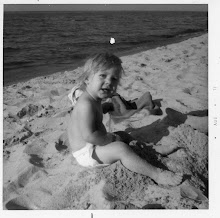
Some people think out a philosophy –
Some live one.
June 1934
[I’m unsure whether this is quoted text from someone else, or Lucille’s own words, but it stopped me short!]
I think the above phrase attempts to define a word or a trait that is difficult to aptly describe: integrity.
A person whose life and character are marked by integrity lives out her philosophy of living consistently despite the changing environment in which she may find herself. Whether buffeted by trials, plagued by loneliness or sickness or blessed by sunny prosperity, a woman (or man) of integrity maintains the same value system and her daily life is marked by such commitment by the choices she makes. It doesn’t mean that she doesn’t stumble or make mistakes or falter, rather it means that the overall scene of her life is consistent and not dualistic. It means that what you see is what you get, and even if it’s not perfect it is reliable.
An ink drawing titled “Vanity” by C. Allen Gilbert shows a lovely woman setting before her vanity table gazing in the mirror at her loveliness. If you alter your focus, you can see the picture is really of an ugly skull with gaping black sightless eyes. Artists throughout the centuries have depicted virtues and vices through allegory and in the Victorian Era there was a trend in the dualistic impression of optical illusion (another popular drawing depicts the devilish nature of gossip). The drawing was meant to incite discussion, rumination and self-examination. But it’s the idea of the optical illusion that I find interesting. Is it the skull or the pretty lady one sees first? Are both images “in” the picture, or is it what we see? Is it perspective or reality?
In her book, Use What You’ve Got and Other Business Lessons I Learned From My Mom , self-made real estate baroness, Barbara Corcoran says (and my quote here is not precise), “Most people think reality defines perspective, but actually it’s the other way around.”
The truth is, integrity is such a nebulous concept because the observer defines it: his or her own life experiences and perspective trains the eyes to perceive reality in a unique and individual way. Try as we may to be women of integrity, the observer’s vantage point and personal experience, much like how we view and respond to art, affects the overall impression.
An artist creates sketch after sketch and preliminary paintings to “practice” the message he wants to create through painting so the philosophical message isn’t just stated but actually transcendent from something two-dimensional to something soulful, imbued with the ability to create a stirring of emotions. These practice runs aid the artist in discovering and understanding for himself what he’s trying to communicate to the observer. How many practice drawings are tossed out in the “working out” of a great painting?
So, is living out a personal philosophy actually practicing, discovering and understanding one’s own self? Can we live out our own philosophy of living while we’re still developing and refining the message of our lives? I like to think so. I love the truth that nothing is static.
We live on a planet that is hurtling through space at an unimaginable velocity. Everything living on this planet is changing, growing, moving, dying. Water is rushing, evaporating, freezing, falling. Seeds are forming, flying, sprouting and producing flowers that are blooming and fruit that satisfies and holds within its flesh even more seeds.
So mistakes are actually freeing and change is the nature of living, and integrity is not aimed at convincing others of our consistency or perfection, but instead it is the “working out” of the message of our lives while we are living it.
The apostle Paul, in his letter to the church in Philippi, talked about the external ceremonies and accomplishments that he, at one time, considered had made him a man of integrity and a man of practical righteousness. In the face of grace and the lordship of Jesus Christ, everything he once touted as emblems of his personal perfection became rags of useless human effort (garbage), and he moved on toward “God’s call through Christ Jesus to the life above.” (Philippians 3:14) What marked Paul as a person of integrity was his fluid, human, graced-by-the-blood-of-Jesus, flawed, passionate philosophy to live big for God, whatever the cost, whatever the season, regardless of human perspective.
Now, the charge I give myself is the freedom to fail. To “forget what is behind me and do my best to reach what is ahead” (Philippians 3:13), gives me the space to acknowledge, feel, apologize, forgive both mine and others’ mistakes so that I can run, discover, grow, and win the “life above”.

No comments:
Post a Comment